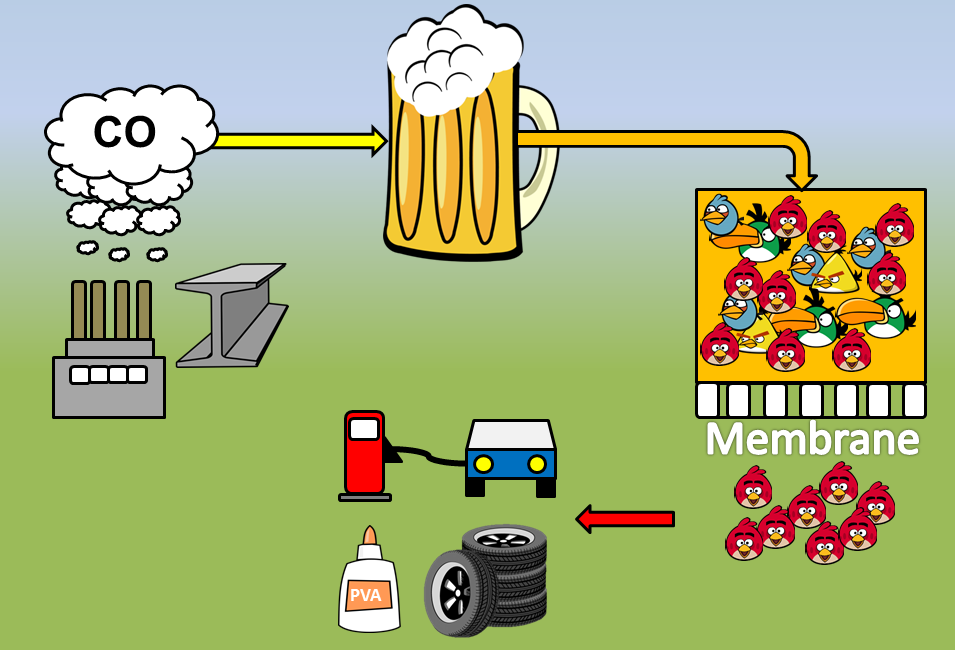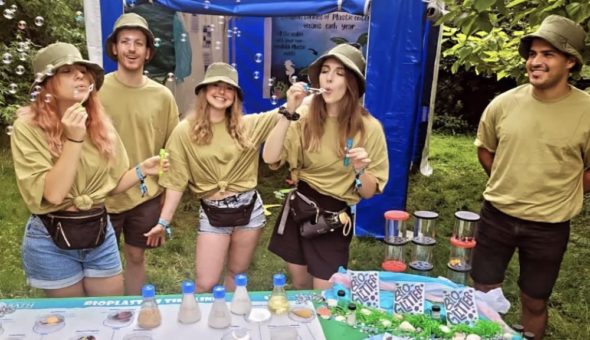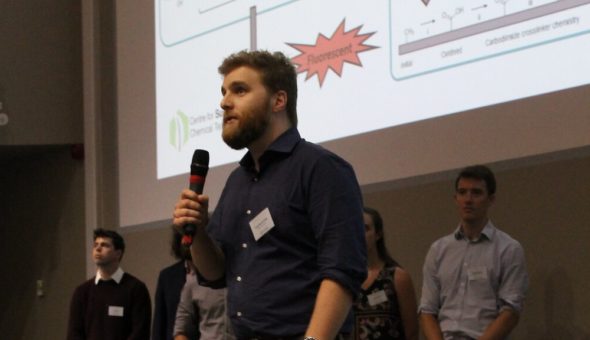Our third year CSCT student, Chris Davey took part in the Three Minute Thesis (3MT®) competition held at University of Bath. The competition challenges doctoral candidates to present a compelling spoken presentation on their research topic and its significance to a non-specialist audience in just three minutes." Here is how Chris presented his thesis titled 'Lower energy recovery of dilute organics from fermentation broths'.
We live in a world of waste. Single use, disposable, chuck it on landfill.
This is not sustainable.
We need to be able to upcycle this waste, converting it into something of worth, or of increased environmental value.
And no, I’m not talking about making art from yogurt pots. How do we achieve this upcycling on an industrial scale?
For my PhD I am looking at the process of taking carbon monoxide, from waste flue gases, such as in the global steel mill industry, and fermenting it with bacteria to produce various bulk chemicals. These bulk chemicals can then be used to make things like fuel for your car, PVA glue or rubber.
This process is great as it takes a waste product and turns it into something of worth. It also has no effect on the food chain; can use very low cost, dirty flue gases; and can be performed locally on site, limiting the need to transport the waste.
However this process has a drawback, these chemicals are of a very dilute concentration within the fermentation broth. An example of a similar fermentation broth is beer, and a chemical we may want to get from this ethanol, with a concentration of around 5 %. A process called distillation is generally used to recover these desired bulk chemicals. This essentially involves heating the whole broth up and separating the parts due to different boiling points. A huge amount of energy is therefore required to separate out the different chemical products due to the large volumes of broth required for a small amount of chemical. The cost of separating out these chemicals from the broth can attribute to > 50 % of their price. As they need to be cost comparable to crude oil based products low energy recovery technologies can play a huge part in reducing production cost.
This is where my PhD comes in.
 I am looking at an alternative low energy technology for the recovery of these fermentation products called membrane separation.
I am looking at an alternative low energy technology for the recovery of these fermentation products called membrane separation.
These are materials generally made of polymers or ceramics that can separate the components of a solution by allowing permeation of a desired species and rejection of another.
Take the angry birds as our fermentation broth for example, we can selectively remove the red bird, our desired product, whilst retaining the blue yellow and green ones by applying a pressure difference across the membrane.
Separation can be based on the size, charge, or other chemical property of the desired species. The great thing about this process is the low amount of energy it requires compared to distillation.
My PhD is focused on finding suitable materials to achieve these types of separations, as well as understanding the fundamental interactions that govern the separation processes within these materials.
Chris is working towards his PhD in the CSCT and is supervised by Dr Darrell Patterson in Chemical Engineering and Professor David Leak in Biology and Biochemistry.
Respond


